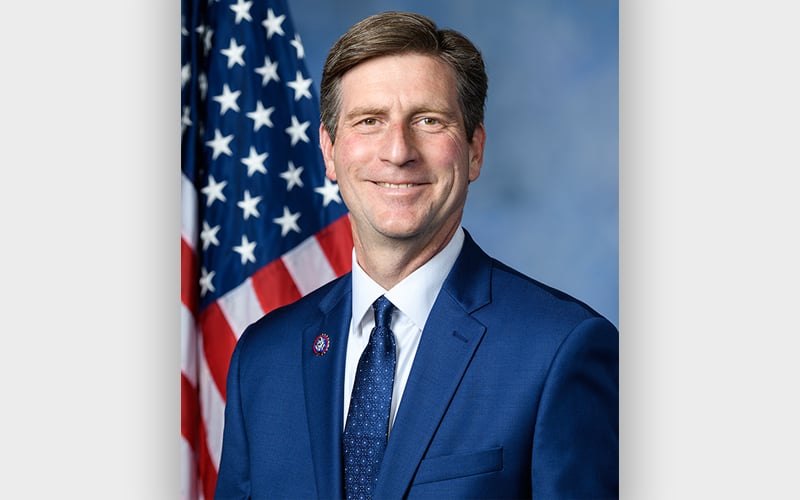
Greg Stanton (Photo courtesy of the Greg Stanton campaign)

Political affiliation: Democrat
Position sought: U.S. representative in 4th District
Age: 52
Career: Phoenix mayor and city councilman; deputy Arizona attorney general
Website: stantonforcongress.com
Greg Stanton, a Democrat who represented Arizona’s 9th Congressional District for two terms, is in what may be the most competitive race in the state.
Stanton handily won his previous two races in the 9th District, which included south Scottsdale, Tempe and parts of Phoenix. Redistricting placed him in the 4th District, which takes in Mesa and western Chandler and leans more Republican than the old 9th.
Stanton is favored to win, but by the slightest of margins, according to FiveThirtyEight, a polling aggregate site that has called the race the most competitive in Arizona.
Stanton faces Republican Kelly Cooper, a political newcomer.
Before being elected to Congress, Stanton was mayor of Phoenix for six years. He also was on the Phoenix City Council and was Arizona’s deputy attorney general on-and-off from 2000 to 2009.
In a third term, he said he would prioritize water, immigration, voter accessibility and job growth.
He presents himself as a bipartisan candidate who has been able to work across the aisle.
Despite what people may think, he said in an email, “bipartisanship is alive and well in Washington, D.C.”
Stanton was unavailable for an interview, but his office answered in writing some questions posed for Cronkite News.
Q: Why are you interested in this job?
During his four years in office, Stanton has been an active legislator, sponsoring 29 bills addressing issues ranging from Indigenous health services to labeling of opioids and drought mitigation.
“There’s no greater feeling than serving your community,” he said in the written response. “They deserve someone who cares about moving our community forward and who does it in a bipartisan way.”
Q: What in your past work, political or volunteer experience makes you the best candidate?
As a former mayor, Stanton “knows how to get things done,” according to his campaign website. In Congress, he has been a member of several committees, including those dealing with transportation, water resources, aviation, highways, intellectual property and the judiciary.
“I’ve been lucky to serve my community in the attorney general’s office, as a city councilman, a mayor and now congressional representative,” Stanton said in his response. “All of those have shown me what works and what doesn’t work when delivering results for our community at every level of government.”
Q: What are the major issues facing Arizona?
One of Stanton’s biggest concerns has been management of limited water resources. He recently was the subject of an article in The Hill for calling California’s plan to use more than the state’s full allocation of water from Lake Mead “reckless and unacceptable.”
“Without a doubt, the No. 1 issue for Arizona right now is water,” Stanton said in the response. “We’re enduring the worst drought in more than 1,200 years and it’s affecting how we get our water and how much of it we have to use. We should expect those challenges to continue, and we should do more to proactively plan how we can use water more efficiently (and) reduce our overall use while keeping our state growing responsibly.”
Q: What will be your top priorities if elected?
“My top priorities in Congress have been investing in our critical infrastructure, securing our water future, supporting economic growth and jobs and cutting costs for working families – especially prescription drug costs.”
Q: How will you work to improve bipartisanship in politics?
According to FiveThirtyEight, Stanton generally votes with President Joe Biden and other Democrats but trends more to the middle than most members of Congress.
“There are many members like me who do just put their heads down, look for compromise and want to deliver results for the people that sent us here,” Stanton said in his response. “We’re no strangers to compromise and working with anyone to get stuff done – we need more of that philosophy here in Congress.”
Q: Do you have any concerns about the security of our elections?
Stanton supports vote-by-mail, especially during the pandemic, when there were concerns in-person voting could spread COVID-19. In an April 2020 blog, he wrote, “Those of us in Arizona know first-hand that vote-by-mail is safe, secure and easy.”
“Nothing in our democracy is more sacred than the right to vote,” Stanton said in his response. “But that right is increasingly under attack in Arizona and in state houses across the country, which have passed restrictive voting laws that disproportionately suppress turnout among minorities, tribal communities, young adults and the eldery, including efforts in Arizona to chip away at the state’s effective vote-by-mail program. Congress must pass legislation to protect and defend every American’s access to the ballot box.”
Q. What should be done, if anything, about border security?
Earlier this year, Stanton sponsored a bill in the House that would give “Dreamers,” people who were brought to the U.S. as children, to apply for permanent legal status if they have been in the country for at least 10 years and have graduated from an institution of higher learning. It also would grant work permits to successful applicants. The bill was sponsored in the Senate by Arizona Sen. Krysten Sinema with bipartisan support.
Stanton’s website focuses primarily on border security, listing bills he has supported to fund law enforcement efforts. These include a Homeland Security funding bill that “invests in smart, effective border security while offering additional resources to avoid a potential humanitarian catastrophe.”
He also opposed the Biden administration’s move to lift Title 42 immigration restrictions without a plan in place to address the “expected surge of migrants at the Southern border,” according to his website. The restrictions, imposed by the Trump administration during the COVID-19 pandemic, allowed the government to turn away migrants at the border to protect public health.
Q. What should the state or federal government be doing to mitigate the ongoing drought and address Arizona’s water issues?
On his website, Stanton says water has been one of his top priorities in Congress, in part because water is so closely tied to the economic security of the state. He lists a number of water bills he has authored or supported, including one that provides $4 billion to support drought relief efforts in the Southwest, another aimed at addressing drought issues affecting Lakes Powell and Mead and a third to reopen and improve the Kyrene Water Reclamation Facility in Tempe.
